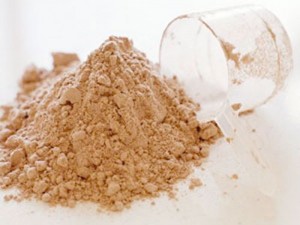 Following some excellent recent articles from my fellow FRN colleagues Sophie Enever and Alison Hedley, I wanted to carry on their great blogs and focus on the importance of post-training nutritional recovery.
Following some excellent recent articles from my fellow FRN colleagues Sophie Enever and Alison Hedley, I wanted to carry on their great blogs and focus on the importance of post-training nutritional recovery.
As avid rugby players and followers you will all no doubt be aware that NOT every training session is the same in terms of its intensity and duration – the day before a match your coach won’t (or at least shouldn’t!) be beasting you in to the ground, or you’ll be knackered on the day of the match (even more so if you don’t fuel your recovery with the correct foods!).
A captains run is totally different to a gym session, just as a gym session is totally different to a field session. So in terms of these different sessions, what changes in terms of your nutritional recovery? The answer is a fair bit! It’s not all about as much carbohydrates and protein as you can manage!
When we exercise, our bodies utilise differing energy systems (commonly known as aerobic or anaerobic) to provide us with energy while we exercise. The intensity and the duration of the session will determine the primary energy system used and your nutritional recovery should be selected accordingly.
Muscle Glycogen
When we eat Carbohydrate, our bodies store this as Glycogen, in both the muscle (short-term use, e.g. sprinting) and liver (long-term use, e.g. endurance). Since rugby is an intermittent sport that requires a mix of these two characteristics, replacing glycogen in both the muscle and liver is of the upmost importance after training or the final whistle blows.
Research has shown that the rate of which muscle glycogen replenishment is at its optimum is in the first 60mins IMMEDIATELY AFTER exercise – so you shouold eat within one hour of finishing training.
So what happens if you delay eating? Research has shown that delaying eating by 2 hours post-exercise can severely hamper muscle glycogen replenishment for up to 8 hours (basically you aren’t effectively replacing your body stores of its main fuel = poor recovery!)
Muscle Repair
We need protein in our diet – as you may have read in some previous blogs, they are the building blocks of muscle, hair, skin, nails – EVERYTHING! So when we exercise, we need to repair our muscles from the pounding they have taken.
Now without fail, the most common question I get asked is ‘how much protein should I be taking after I train?’ This is where I will probably cause some controversy, given that most rugby players (and I include top level guys in this statement) think that: ‘1 scoop isn’t enough, 2 scoops is good, so 3 must be excellent!’ In my opinion, we need to get away from this mentality and I am going to attempt to clear this up right now.
Research is currently suggesting that a dose of dietary protein approximately 0.3g per kilo of body weight post-resistance exercise is enough to stimulate protein synthesis (i.e. – grow/repair muscle).
So, if you weigh:
70kg = 21g Protein
80kg = 24g Protein
90kg = 27g Protein
100kg = 30g Protein
For those that use a protein powder, have a look at how big your scoop is (varies slightly depending on the brand you buy) and compare the research to how much you ACTUALLY use in your post-gym shakes. This could make for some interesting reading! And just to clarify, dietary protein also refers to meat, fish, nuts/seeds, eggs etc. – not just protein powders!
Training Sessions
As I mentioned above, every training session is different, and so nutritional recovery strategies need to be different in order to give you a recovery as effective as possible.
Have a look at the table below, and see how I approach differing training sessions with differing nutritional strategies in order to maximise players’ recovery – do you do the same thing?
|
|
Long Aerobic/ Endurance Training |
Intense Short Duration/ Resistance Training |
Technical Drills/Captain’s Run |
Situation of Short Recovery (e.g. Sevens) (<4 hours) |
|
Exercise Characteristics |
Prolonged aerobic exercise CHO & Fat metabolism |
High Intensity Primarily Anaerobic (CHO) |
Low volume/intensity Primarily Anaerobic (CHO) |
Multiple Matches/Sessions on same day |
|
Specific Recovery Requirements |
Energy Replacement Glycogen Replenishment Muscle Repair |
Energy Replacement Glycogen Replenishment Muscle Repair |
Low Energy Needs Lower CHO Intake Muscle Repair |
Energy Replacement Focus on High CHO Glycogen Replenishment Low PRO & Fat intake to avoid delay in gastric emptying |
|
Macronutrient Recommendations |
CHO: 1.2 – 1.5g/kg PRO: 0.3g/kg Fat: 0.2 – 0.3g/kg |
CHO: 1.2 – 1.5g/kg PRO: 0.3g/kg Fat: Minimal |
CHO: 0.5 – 1g/kg PRO: 0.3g/kg Fat: Minimal |
CHO: 1.2 – 1.5g/kg PRO: Minimal Fat: Minimal |
|
Examples |
750ml Sports Drink Protein Recovery Bar Approx. 300ml Milk |
300ml Juice Piece of Fruit 6’ Pizza |
Fruit Smoothie (330ml) + 1 scoop PRO powder |
750ml Sports Drink (CHO focus) High CHO snacks – cereal bars, crackers etc. |
Conclusion
Overall, I think it is important to remember that training sessions differ in their intensity and duration and ultimately so should nutritional recovery strategies. A blanket approach to recovery (i.e. – same meal, same drink for EVERY player) doesn’t work for and, in situations where a nutritionist isn’t available, players need to be aware of their own recovery requirements.
Sadly, without sitting you all down individually, and performing some pretty uncomfortable procedures on you, I can’t know how much Carbohydrate you use for energy or how much chicken you need to eat to help your muscles repair, but this blog can hopefully make you more aware that it is not just about how much you can fit on your plate!
Look forward to your thoughts on this subject area!
Chris








 When most people hear the word “Peloton” they think of an expensive black bike with shiny red buttons and that controversial commercial where the husband gifted his wife a Peloton for Christmas.
When most people hear the word “Peloton” they think of an expensive black bike with shiny red buttons and that controversial commercial where the husband gifted his wife a Peloton for Christmas. If the app interests you, Peloton is currently offering a 30 day FREE TRIAL, so why not give it a try? Check it out
If the app interests you, Peloton is currently offering a 30 day FREE TRIAL, so why not give it a try? Check it out 

 This article would not be complete, however, if we did not acknowledge some of the delivery issues that have been plaguing Peloton over the last year. Most of the delivery issues seem to affect U.S. deliveries, however, the UK deliveries have been affected as well.
This article would not be complete, however, if we did not acknowledge some of the delivery issues that have been plaguing Peloton over the last year. Most of the delivery issues seem to affect U.S. deliveries, however, the UK deliveries have been affected as well.







